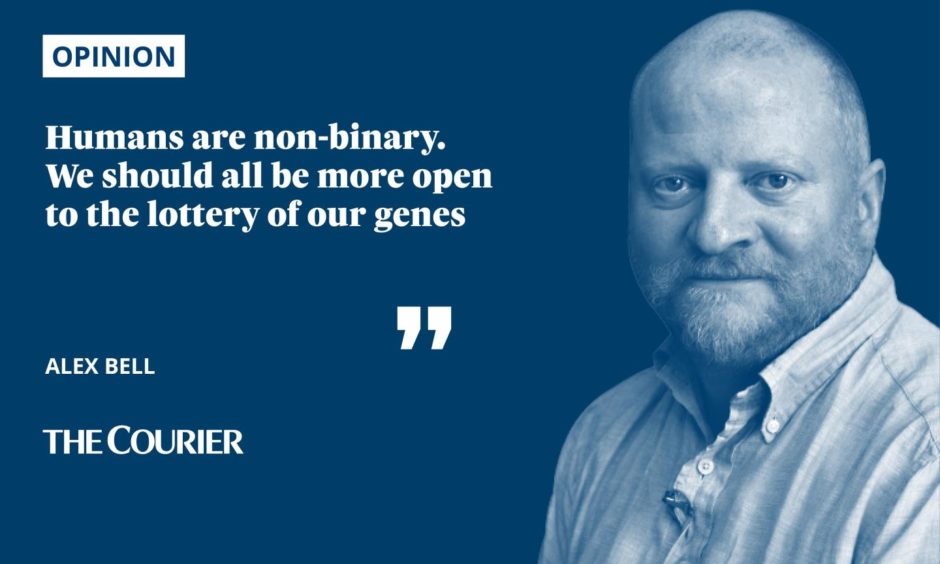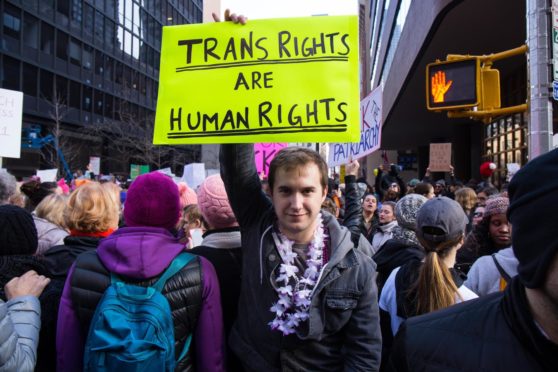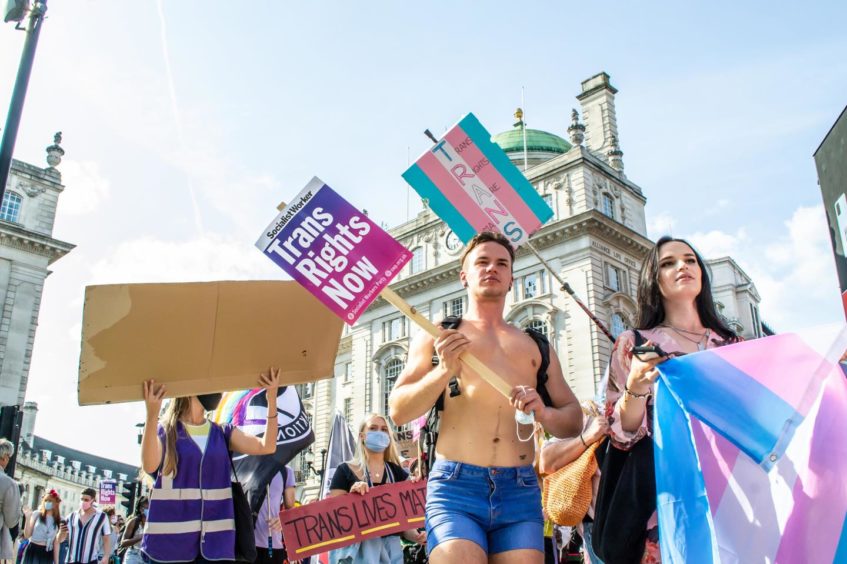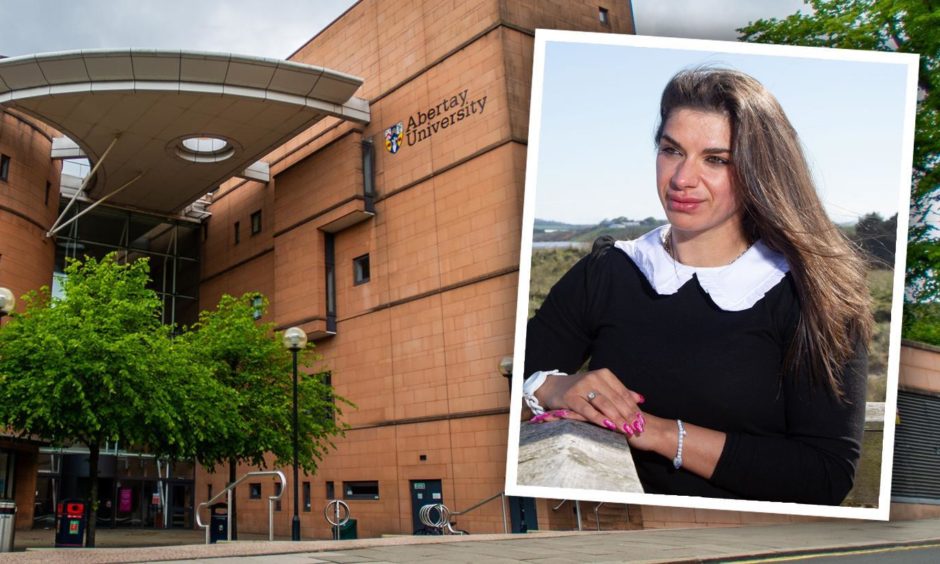“It is not about who you want to go to bed with, it’s who you want to go to bed as”. Not my words. They were written by the American transgender activist and author Jennifer Finney Boylan
But thanks to 300 years of secularism, rationalism and democracy, the statement feels just fine.
We are a tolerant society open to many different versions of being human.
Another author Jen Manion tells us about gender fluidity in the past in her book, Female Husbands: A Trans History.
Once, transgender people might have been persecuted if they didn’t hide their truth. Now, thanks to all that human development, they have the same protection in law as everyone.

Which should make the trans issue pretty straightforward. A victory for difference. But it’s not.
Instead it generates anger. Much of it from transgender people and their supporters. Which is quite odd.
It’s explained by the paradox of trans politics. On the one hand they seek an identity. They are trans, as gay men and lesbians have long sought recognition.
Humans are non-binary. We should all be more open to the lottery of our genes.
On this, there is little argument and quite a lot of support. But then the argument gets flipped.
It is a binary world and trans men wish to be known as women.
That’s not all like previous campaigns for tolerance. Gay men didn’t want to be something, or someone else. They wanted to be gay, and for that to be recognised.
The trans paradox is they both want to be themselves, and to have the right to assume the identity of another.
Transgender people are not shocking us with their identity or their inner truth but rather with their logic. You can’t trash a binary world then demand to be defined in binary terms. Or rather, you can, but it’s going to be a difficult sell.
Artist and Academy in clash of views
That’s not undermining sex and gender, it’s challenging truth. It’s not assault an on religio-social morals, but science and reason.
When artist Jess de Wahls writes the following, it seems reasonable.
“I have no issue with somebody who feels more comfortable expressing themselves as if they are the other sex (or in whatever way they please for that matter).
“However, I cannot accept people’s unsubstantiated assertions that they are in fact the opposite sex to when they were born and deserve to be extended the same rights as if they were born as such.”
There is no hate, no urging to attack, just a tolerant remark about one identity not being the same as another.
However, that didn’t stop de Wahls from being cancelled by the Royal Academy gift shop.
Artist Jess De Wahls accuses the Royal Academy of 'responding to a mob' after removing her work from their shop in response to 'woke' internet trolls accusing her of transphobia.@mattfrei | @JessDeWahls pic.twitter.com/ARuHZ3vkFZ
— LBC (@LBC) June 26, 2021
Dundee student Lisa Keogh was caught up in a similar spat involving Abertay University when she said women had vaginas.
It’s true. And thankfully this silly episode was resolved.
What’s a stake are facts. If a man transitions to woman, the fact is that person’s overwhelming experience of life is as a transgender person. Own it.
Bullying society into accepting assertions won’t help the cause, nor win friends. It is a return to an irrational, belief driven society. Something an academy should have no truck with.
Following an outcry, and de Wahls’ impressive appearances in the media, the Royal Academy apologised for its original decision.
The whole thing then had been about an institutional capture. The desperate need for officialdom to not offend.
Which is another slur on the RA – not academic at all, but a feeble body incapable of taking a rational course of action.
Nobody wants society to lose its grip on reason and secularism. Those are the pillars of modern society. Which is why being dogmatic about unresolved issues is so counterproductive to the trans debate.
An apology from the Royal Academy: https://t.co/U6Hw090gWW
— Royal Academy (@royalacademy) June 23, 2021
The RA stramash did not end with the official apology. There are schools attached to the institution. Some pupils issued a statement saying this entrenched transphobia.
“(We are) …angered and disheartened that the Royal Academy has chosen to give legitimacy to transphobia,” said one social media post.
It went on: “There is a degrading double standard in play here with the RA using the pride flag on its logo while buckling under pressure from conspiratorial Terf [trans-exclusionary radical feminist] viewpoints.”
Which betrays this as a bitter fight between opposing views that has burst its campus grounds and now dominates the national tone.
Debate is in danger
Most of us are neither trans nor terf. It is however our society and we have rights, to debate, to inquire and to absorb the new.
I prefer a world which flies Pride flags and wrestles with its conscience. Where we muddle forward, aiming for tolerance and love, occasionally stumbling on conflicting claims.
A world where points are debated, and people allowed to express tolerant opinions. That’s a European world, had won by countless brave people who stood up to Gods and masters in the fight for reason and science.
Currently we are being asked to suppress that in favour of not hurting anyone’s feelings. That is both contradictory and dangerous. It puts faith before science. Anger before reason. This is a debate, and in many cases a legal contest. Let the argument flourish while hating no one.


